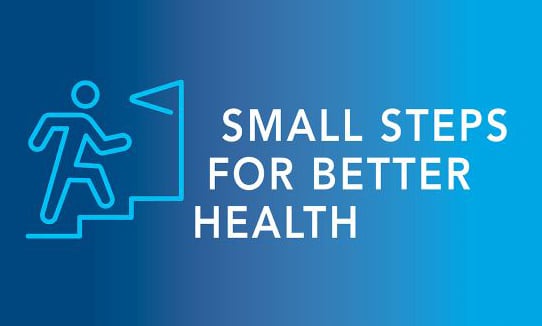



Summary
A heart screening can check your risk for a cardiovascular event, like a heart attack or stroke, so you can make healthy lifestyle changes.
Subscribe to our podcast to follow along with Small Steps for Better Health.
Studies have shown that there are four things you can do that will decrease your risk of having a major cardiovascular event by 85%:
- If you smoke, quit.
- Maintain a healthy weight.
- If you have high blood pressure, treat it,
- If you have high cholesterol, treat it.
Those four things would make such a huge difference in people in our community. Mississippi is truly experiencing an epidemic of heart disease, and catching that heart disease early and making changes – including appropriate medication and lifestyle changes – is the best way we can turn that around.
In the early stages of heart disease, when medication and lifestyle changes can make the most difference, there often are not any symptoms. That’s why we offer a heart screening that can identify problems really early, when we can make the most difference.
What is a heart screening?
A heart screening involves:
CT Calcium Score
A Coronary Calcium Scan is a simple test. You’ll lie quietly in the scanner machine for about five minutes while it takes pictures of your heart.
A coronary calcium scan looks for specks of calcium in the walls of the heart arteries. This indicates early heart disease. One of our doctors will study the pictures to see if you are at risk for future heart problems.
Because calcifications are an early sign of heart artery disease, a coronary calcium scan can show whether you are at risk of heart attack before other signs and symptoms occur.
EKG (Electrocardiogram)
A quick and painless test, EKG measures the electrical activity of the beating heart. An EKG provides two useful types of information:
By measuring intervals on the EKG, a cardiologist can determine if the electrical activity of your heart is too fast, too slow, normal or irregular.
By measuring the amount of electrical activity passing through the heart muscle, the cardiologist can determine if parts of your heart might be too large, overworked or scarred.
Lipid Profile
The lipid profile can help determine your risk of heart disease. It is recommended that healthy adults with no other risk factors be tested with a fasting lipid panel once every five years. If you have other risk factors, or if you’ve been diagnosed with high cholesterol, more frequent testing is recommended.
A lipid profile includes:
- Total cholesterol
- HDL (high density lipoprotein, the so-called "good cholesterol" believed to transport excess cholesterol out of the blood to the liver for disposal)
- LDL (low density lipoprotein, the so-called "bad cholesterol" that transports cholesterol from the liver to the tissues and organs)
- Triglycerides (sugar and fatty acids)
Early detection of heart disease is key to improving your health and quality of life long-term. Encourage your loved ones to schedule this test so they can take action to improve their heart health.
Cardiac Care at NMMC
When it comes to your heart, you should know that many of the nation’s latest cardiovascular procedures got their start right here in Tupelo. Learn more.
Small Steps, Better Health
Every two weeks we will introduce another Small Step for Better Health. Follow us on social media for more tips, and sign up for our email newsletter, True North.


Barry Bertolet, MD
Dr. Barry Bertolet is an interventional cardiologist with Cardiology Associates of North Mississippi and on the medical staff of North Mississippi Medical Center’s Heart and Vascular Institute. He graduated from the University of Mississippi School of Medicine and complete his internal medicine and cardiology training at the University of Florida. Dr. Bertolet was on the cardiology faculty at the University of Florida for five years before moving to Tupelo in 1997.

Subscribe to Our Newsletter
Like this content and want to get more? Sign up for True North, the health and wellness newsletter from North Mississippi Health Services!

Subscribe to Our Newsletter
Like this content and want to get more? Sign up for True North, the health and wellness newsletter from North Mississippi Health Services!

Nurse Link®
Not sure if you need Urgent Care or the ER? Call 1-800-882-6274 anytime to speak directly to a registered nurse and get immediate answers. Using computerized medical protocols, nurses direct callers to the most appropriate treatment. Our nurses are available 24 hours per day, seven days per week.



